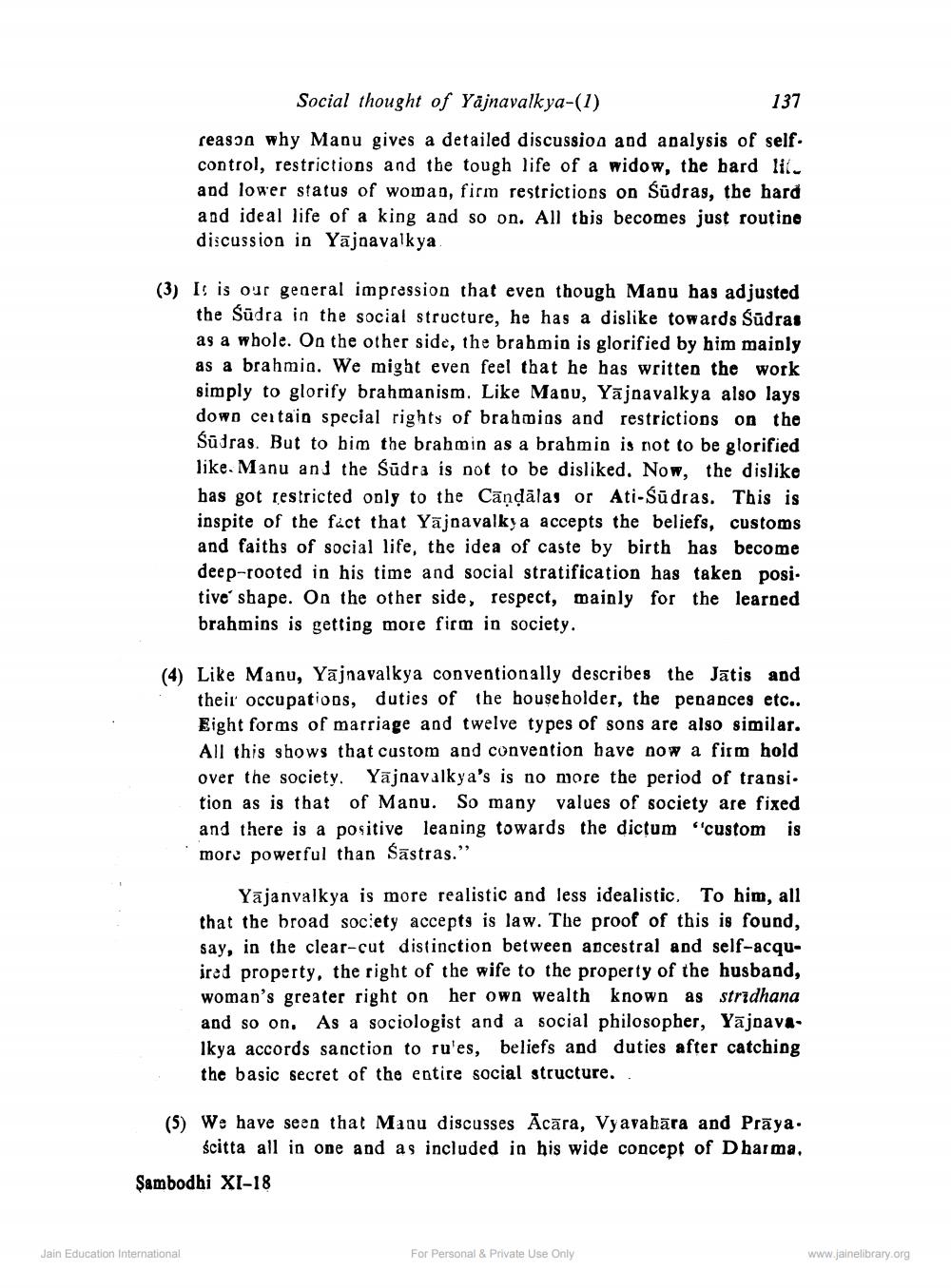________________
Social thought of Yajnavalkya-(1)
137 reason why Manu gives a detailed discussion and analysis of self. control, restrictions and the tough life of a widow, the hard lii and lower status of woman, firm restrictions on Sūdras, the hard and ideal life of a king and so on. All this becomes just routine discussion in Yājaavalkya
(3) It is our general impression that even though Manu has adjusted
the Sūdra in the social structure, he has a dislike towards Sūdras as a whole. On the other side, the brahmin is glorified by him mainly as a brahmia. We might even feel that he has written the work simply to glorify brahmanism. Like Maou, Yajnavalkya also lays dowo certain special rights of brahmins and restrictions on the Śūdras. But to him the brahmin as a brahmin is not to be glorified like. Manu and the Sūdra is not to be disliked. Now, the dislike has got restricted only to the Cāņņālas or Ati-Sūdras. This is inspite of the fact that Yājnavalkya accepts the beliefs, customs and faiths of social life, the idea of caste by birth has become deep-rooted in his time and social stratification has taken posi. tive shape. On the other side, respect, mainly for the learned brahmins is getting more firm in society.
(4) Like Manu, Yājnavalkya conventionally describes the Jātis and
their occupations, duties of the householder, the penances etc.. Eight forms of marriage and twelve types of sons are also similar. All this shows that custom and convention have now a firm hold over the society. Yājnavalkya's is no more the period of transi. tion as is that of Manu. So many values of society are fixed and there is a positive leaning towards the dictum "custom is more powerful than Šāstras."
Yājanvalkya is more realistic and less idealistic. To him, all that the broad society accepts is law. The proof of this is found, say, in the clear-cut distinction between ancestral and self-acquired property, the right of the wife to the property of the husband, woman's greater right on her own wealth known as strīdhana and so on. As a sociologist and a social philosopher, YājoavaIkya accords sanction to rules, beliefs and duties after catching the basic secret of the entire social structure..
(5) We have seen that Madu discusses Ācāra, Vyavabāra and Prāya.
Ścitta all in one and as included in his wide concept of Dharma, Sambodhi XI-18
Jain Education International
For Personal & Private Use Only
www.jainelibrary.org




